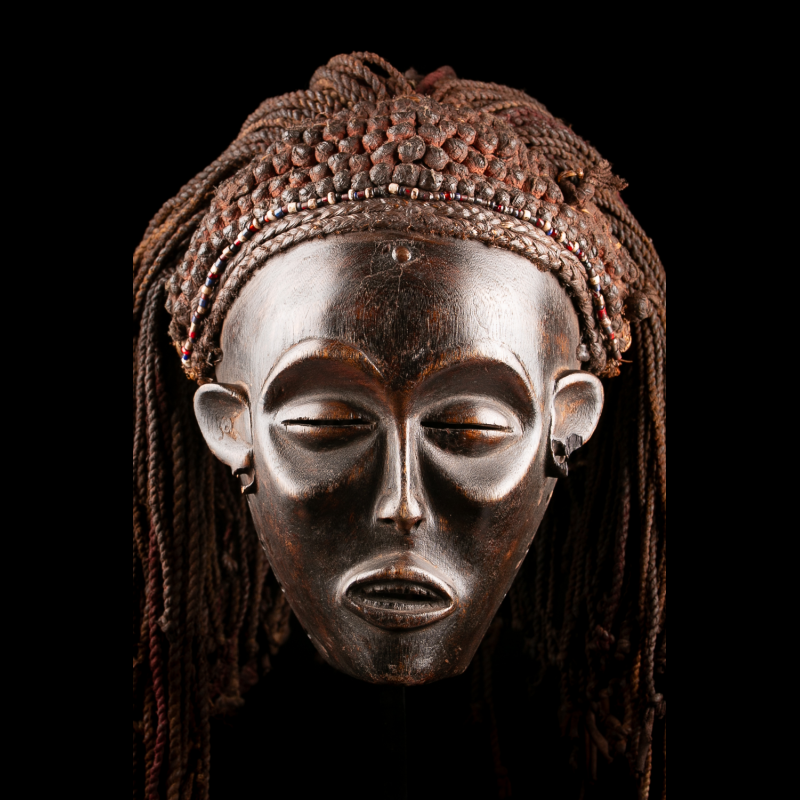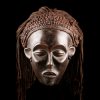














African Pwo masks (or Mwana Pwo) are very famous in the African Chokwe culture, a large ethnic group of Angola, Zambia and the Democratic Republic of Congo.
These traditional female masks honor the founding ancestor of the lineage, reflecting the matrilineal structure of the Chokwe and Lunda tribal society.
During ritual dances, a male dancer disguises himself as a woman, wearing a costume made of braided fibers that covers his entire body, and performs slow and precise movements to imitate feminine grace. Once the mask is worn, it is traditionally discarded.
Pwo masks are often paired with their male counterpart, the Chihongo mask, representing the spirit of power and wealth.
Together, these masks are worn by men during dances of a magical nature, aimed at bringing fertility and prosperity to the village.
While the female mask evokes the female ancestor, the male mask symbolizes authority and prosperity.
The wearer of the Pwo mask, dressed as a woman, uses elegant and graceful dance steps to show the women of the village the importance of grace and good manners.
These masked festivities are not only artistic performances, but are also seen as incarnations of ancestral spirits, playing a crucial role in religious rituals and the transmission of cultural values within Chokwe society.
From a stylistic point of view, we generally find a very naturalistic and refined aesthetic that have contributed to the success of African artistic corpus among collectors.
Data sheet

African Pwo masks (or Mwana Pwo) are very famous in the African Chokwe culture, a large ethnic group of Angola, Zambia and the Democratic Republic of Congo.
These traditional female masks honor the founding ancestor of the lineage, reflecting the matrilineal structure of the Chokwe and Lunda tribal society.
During ritual dances, a male dancer disguises himself as a woman, wearing a costume made of braided fibers that covers his entire body, and performs slow and precise movements to imitate feminine grace. Once the mask is worn, it is traditionally discarded.
Pwo masks are often paired with their male counterpart, the Chihongo mask, representing the spirit of power and wealth.
Together, these masks are worn by men during dances of a magical nature, aimed at bringing fertility and prosperity to the village.
While the female mask evokes the female ancestor, the male mask symbolizes authority and prosperity.
The wearer of the Pwo mask, dressed as a woman, uses elegant and graceful dance steps to show the women of the village the importance of grace and good manners.
These masked festivities are not only artistic performances, but are also seen as incarnations of ancestral spirits, playing a crucial role in religious rituals and the transmission of cultural values within Chokwe society.
From a stylistic point of view, we generally find a very naturalistic and refined aesthetic that have contributed to the success of African artistic corpus among collectors.